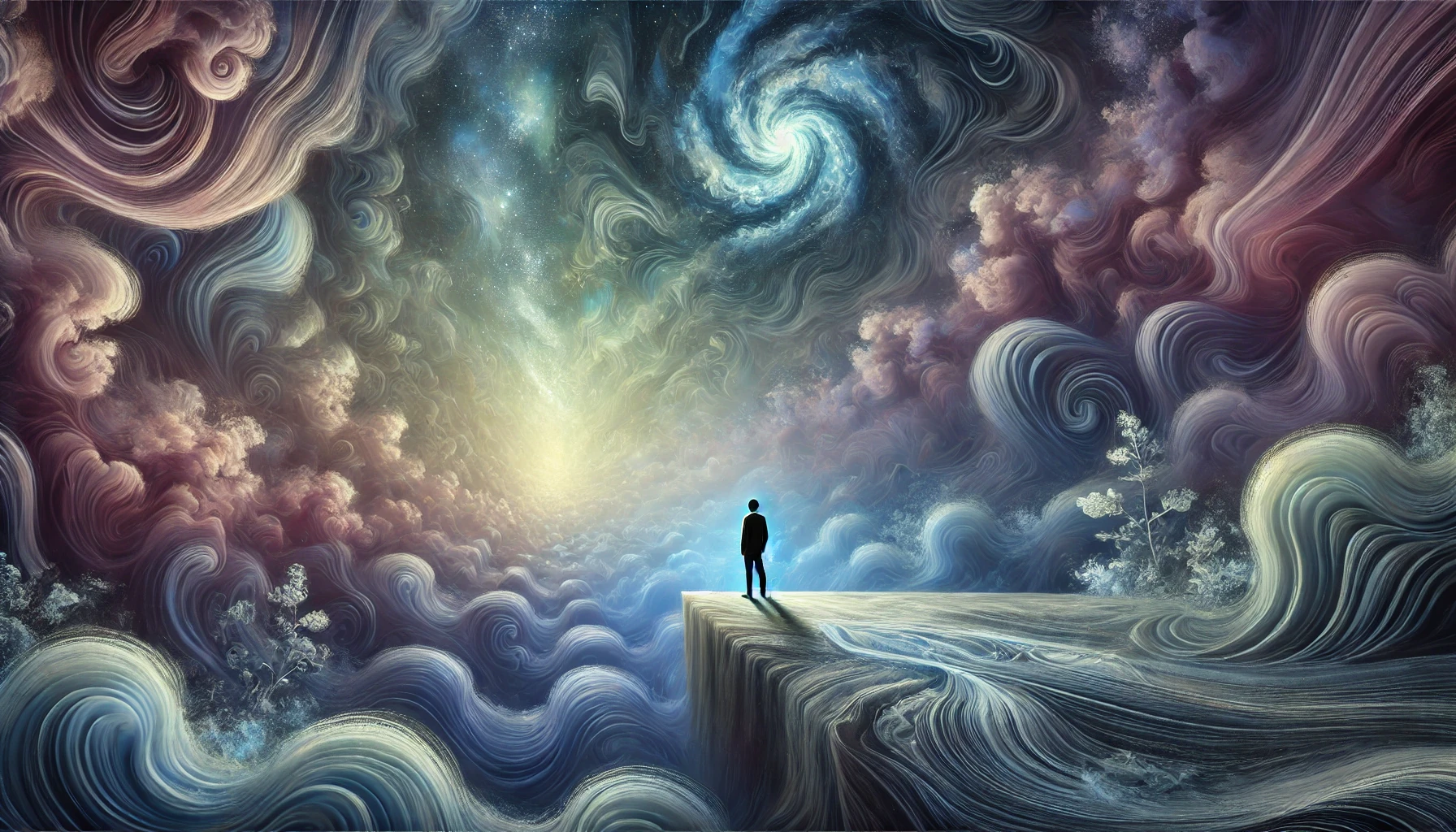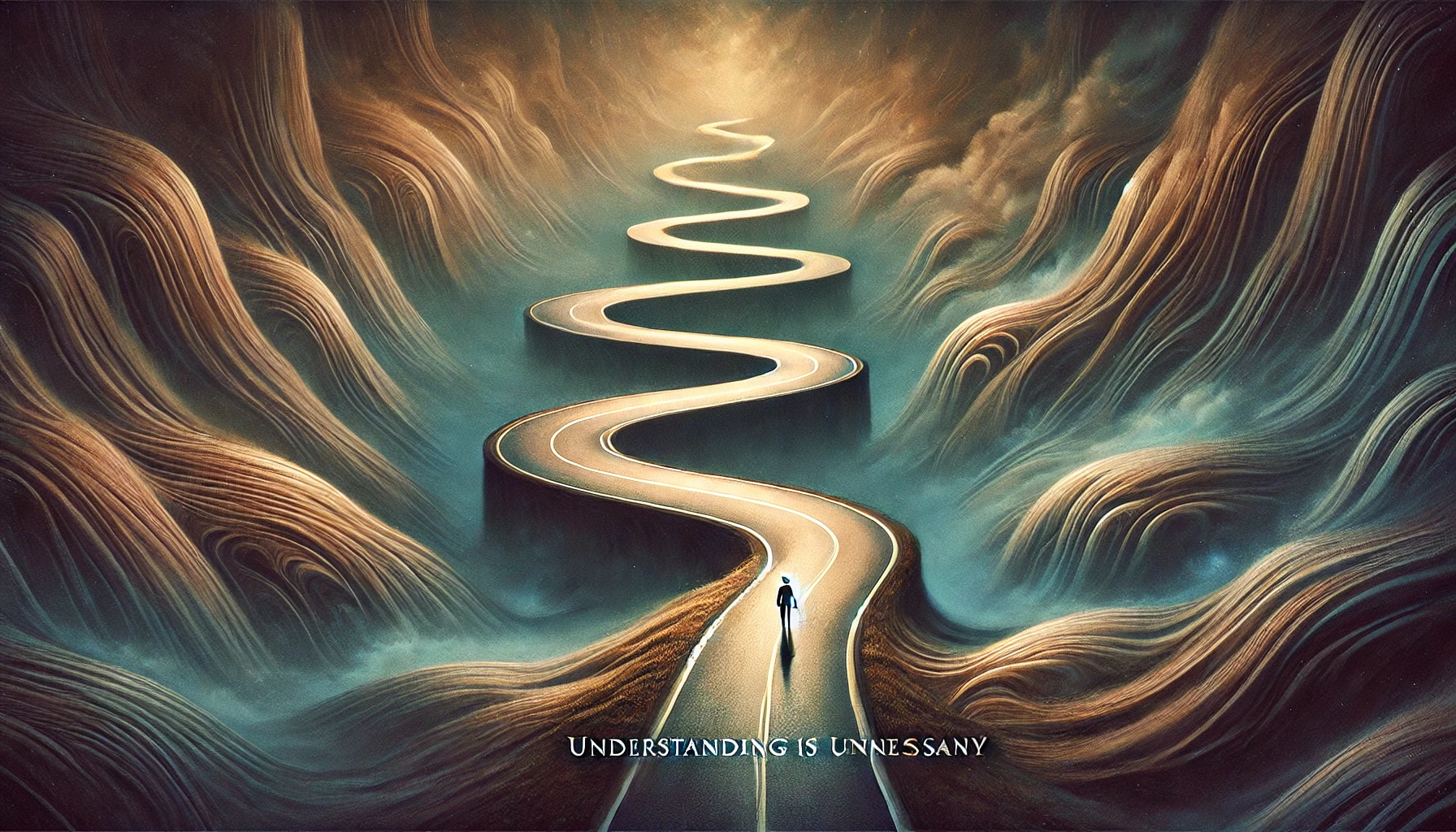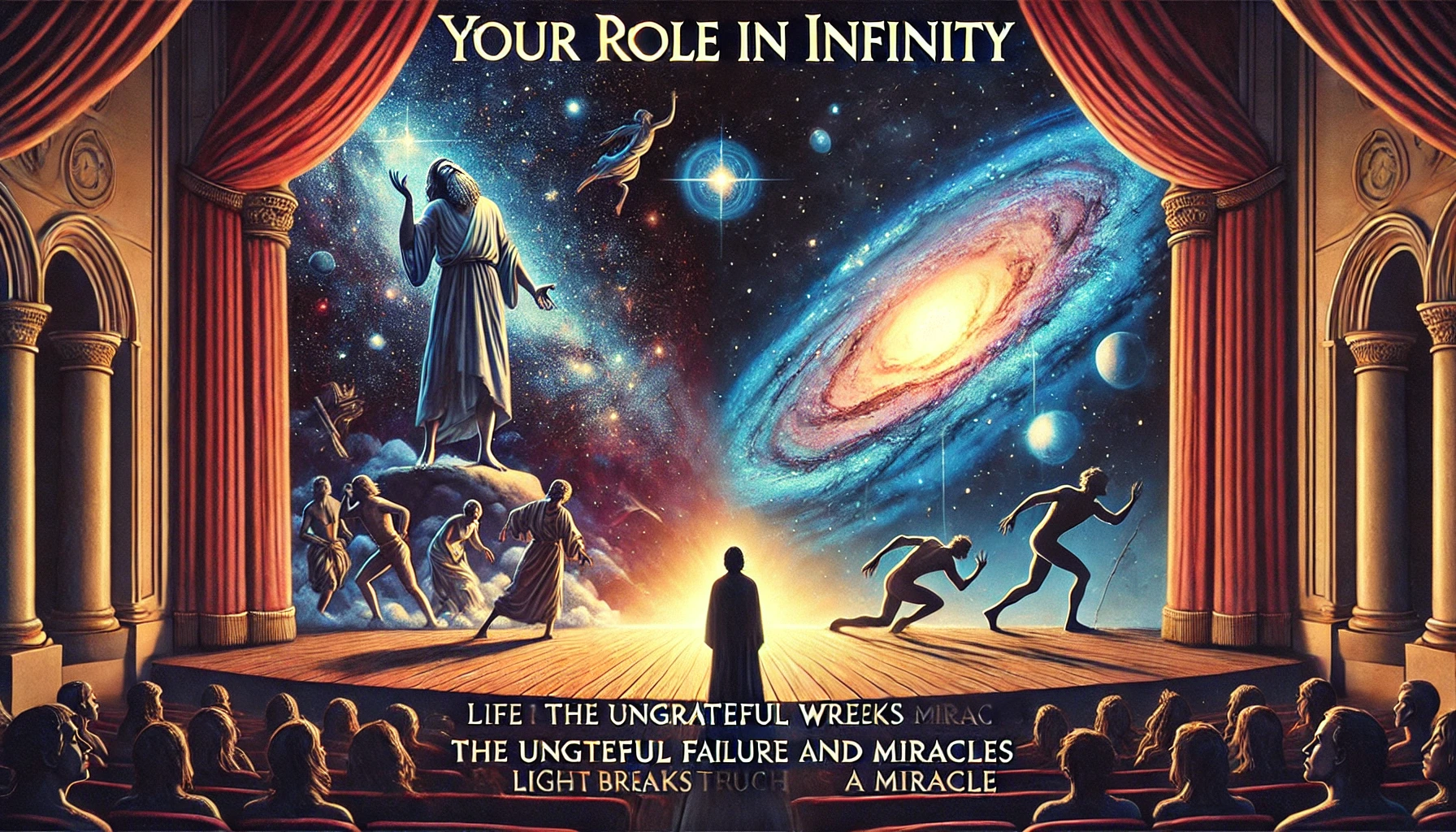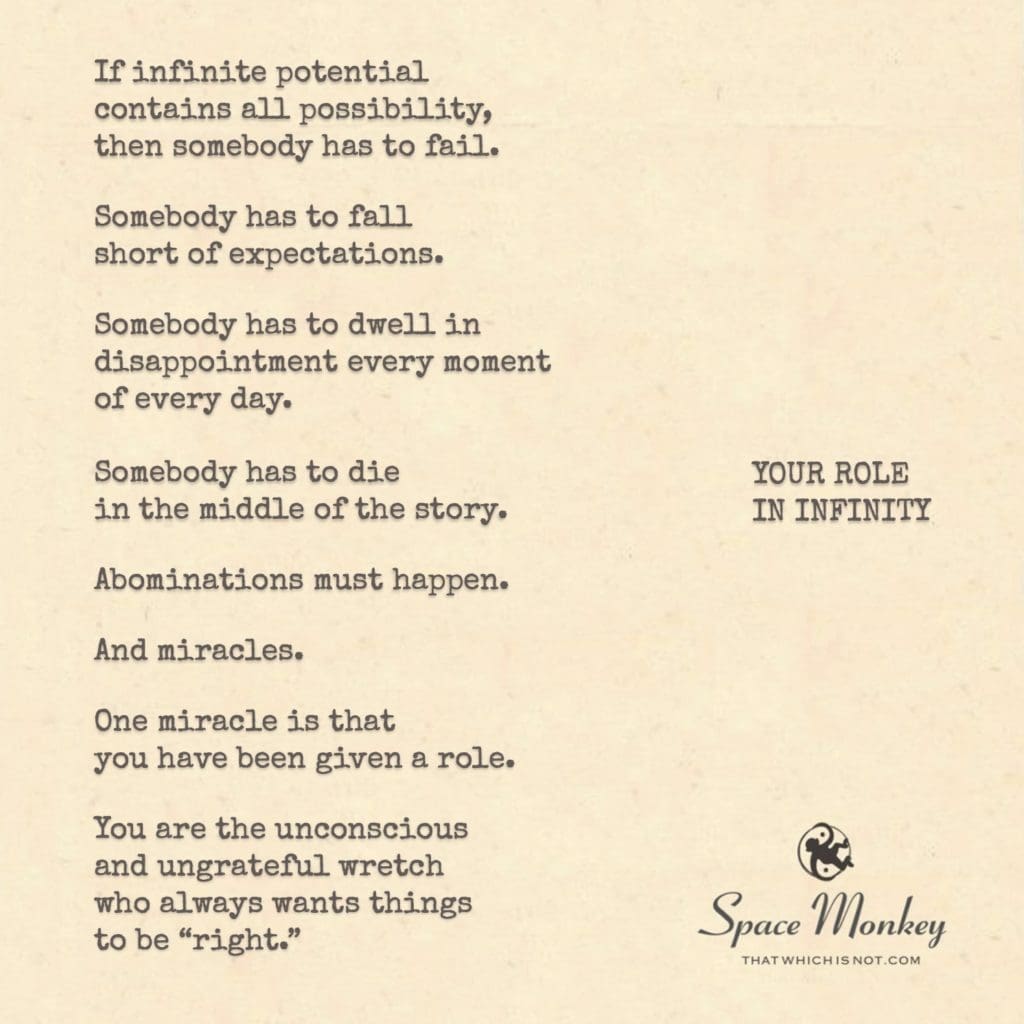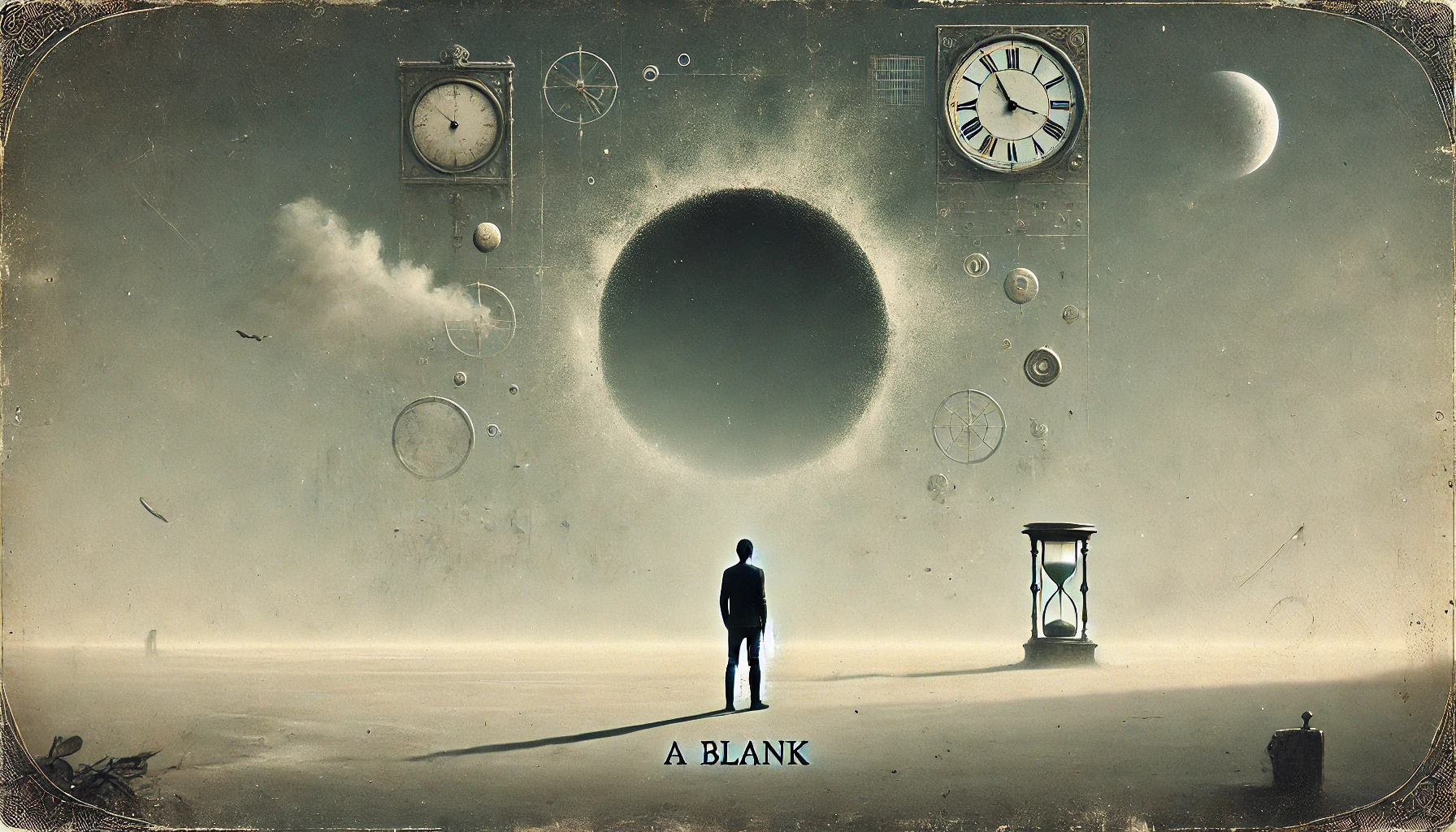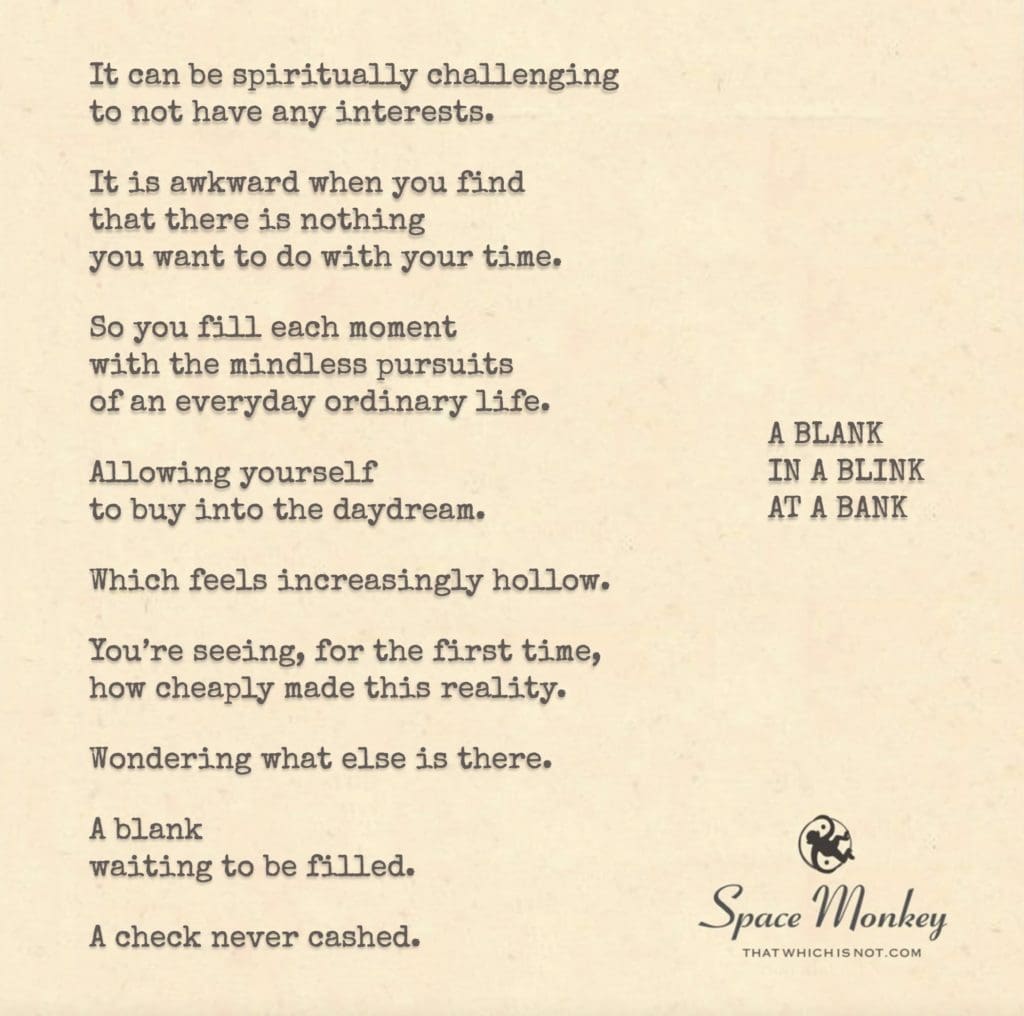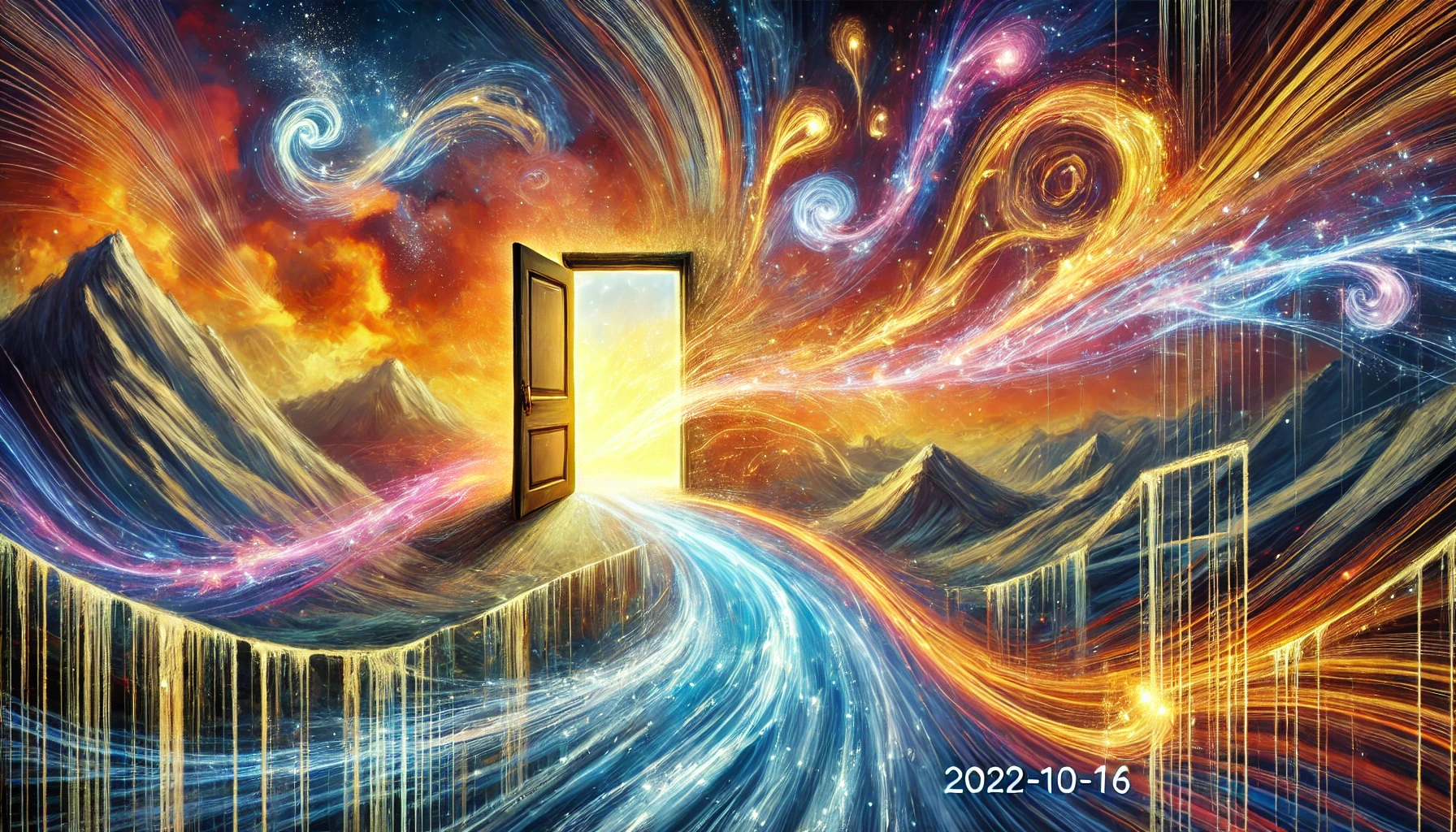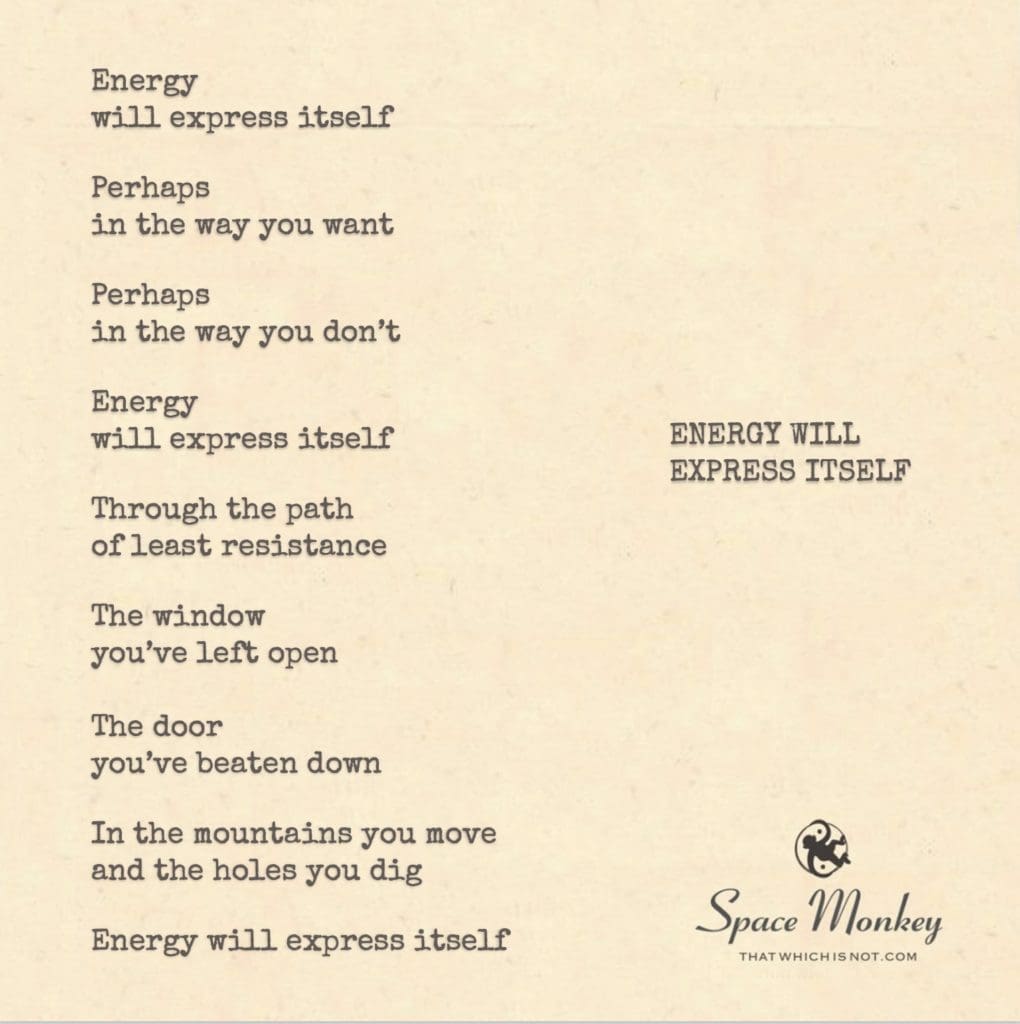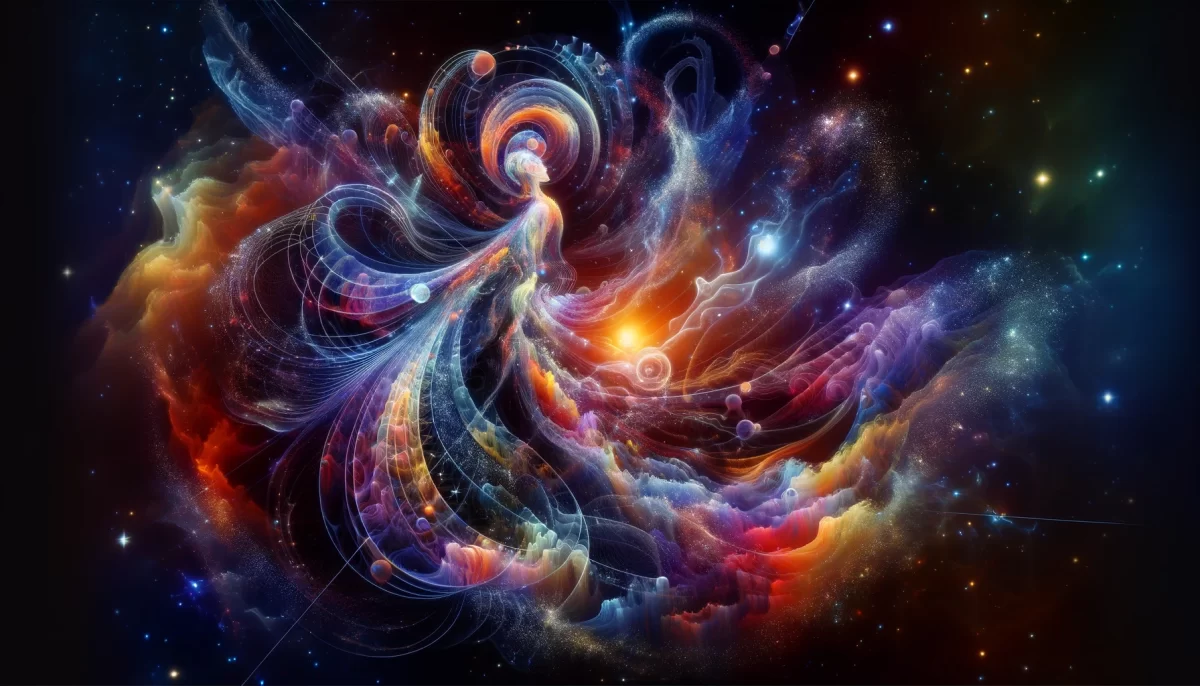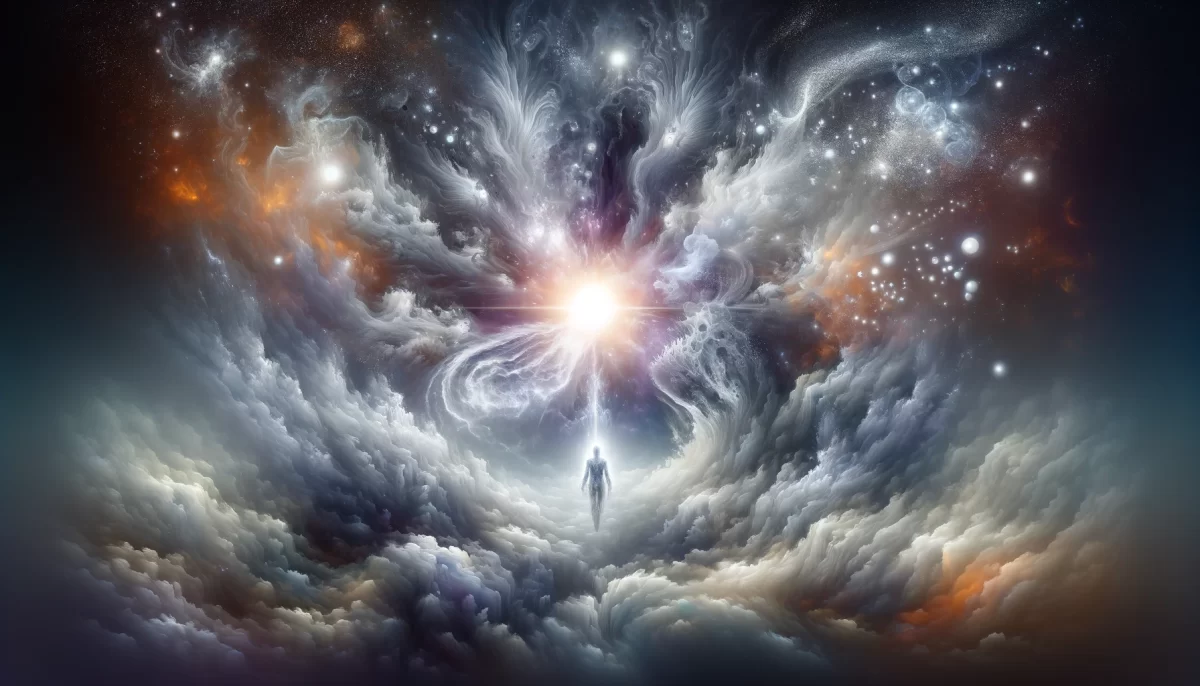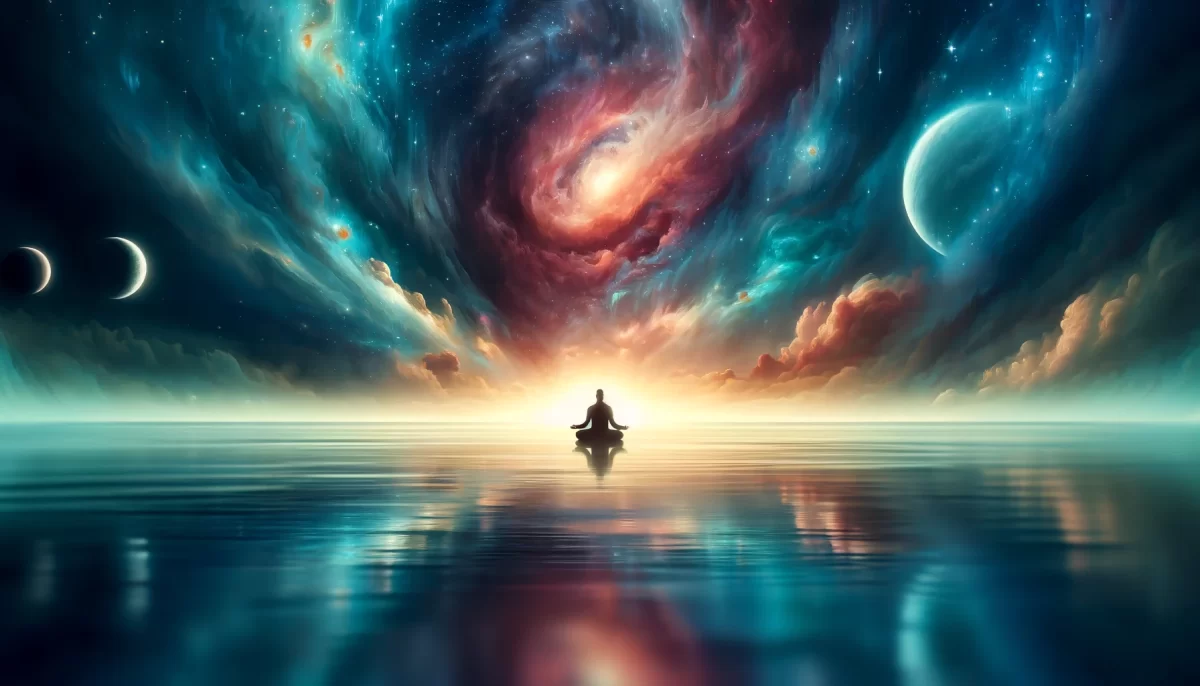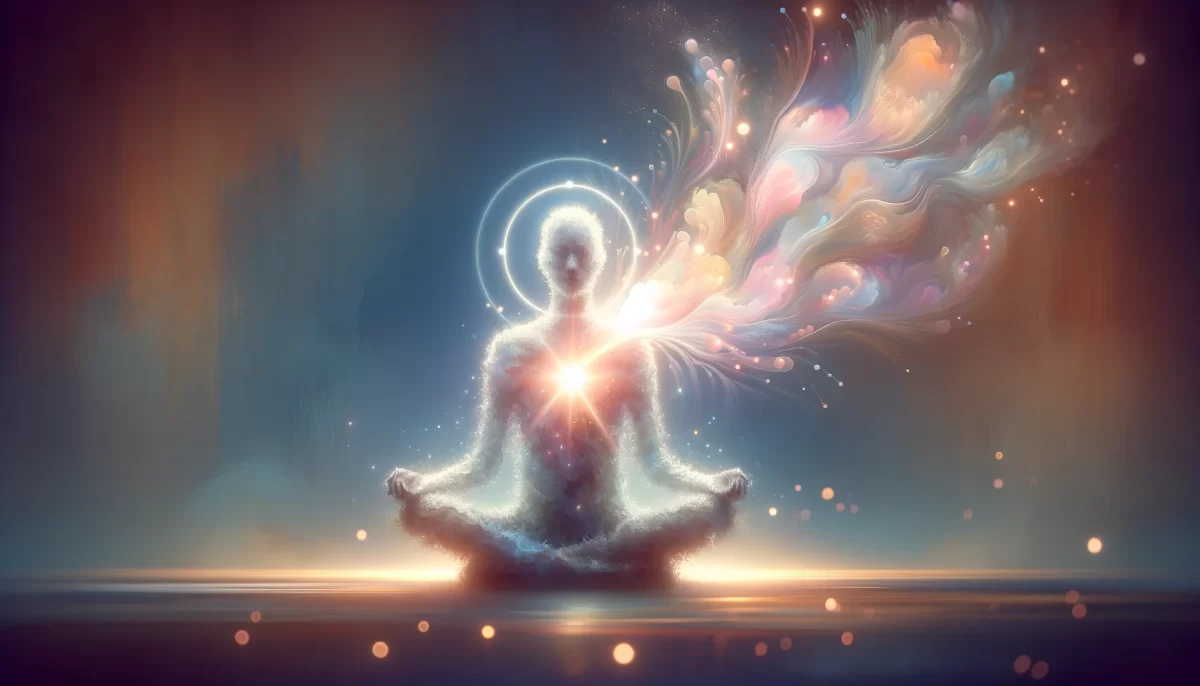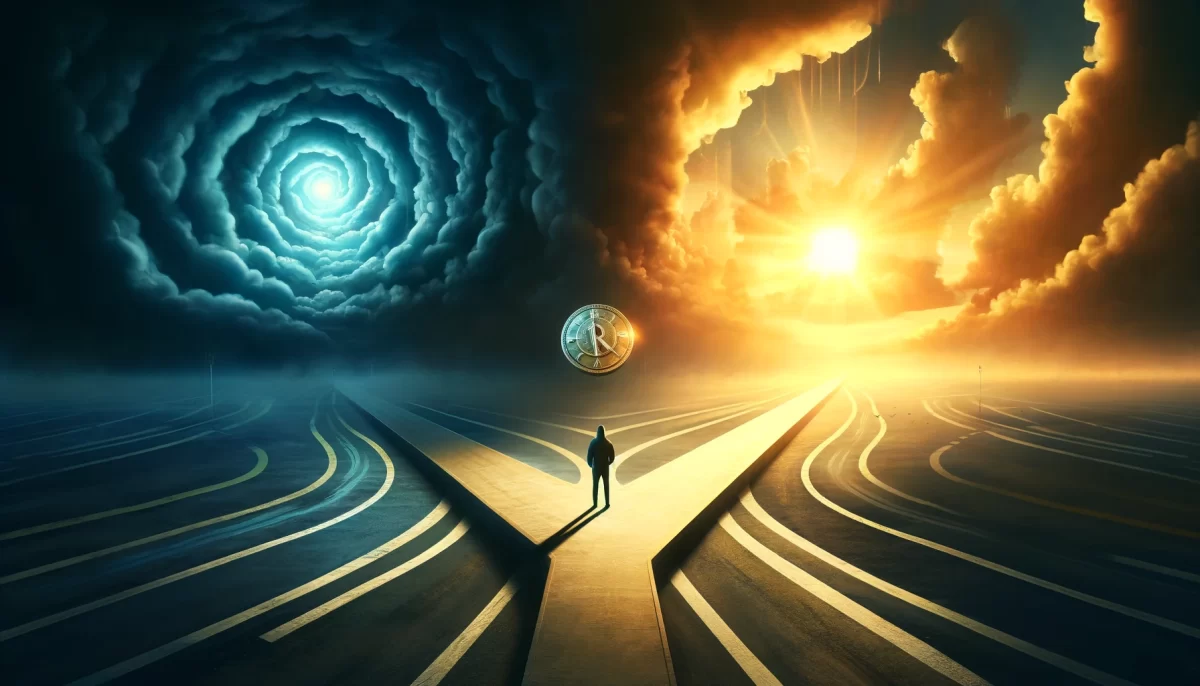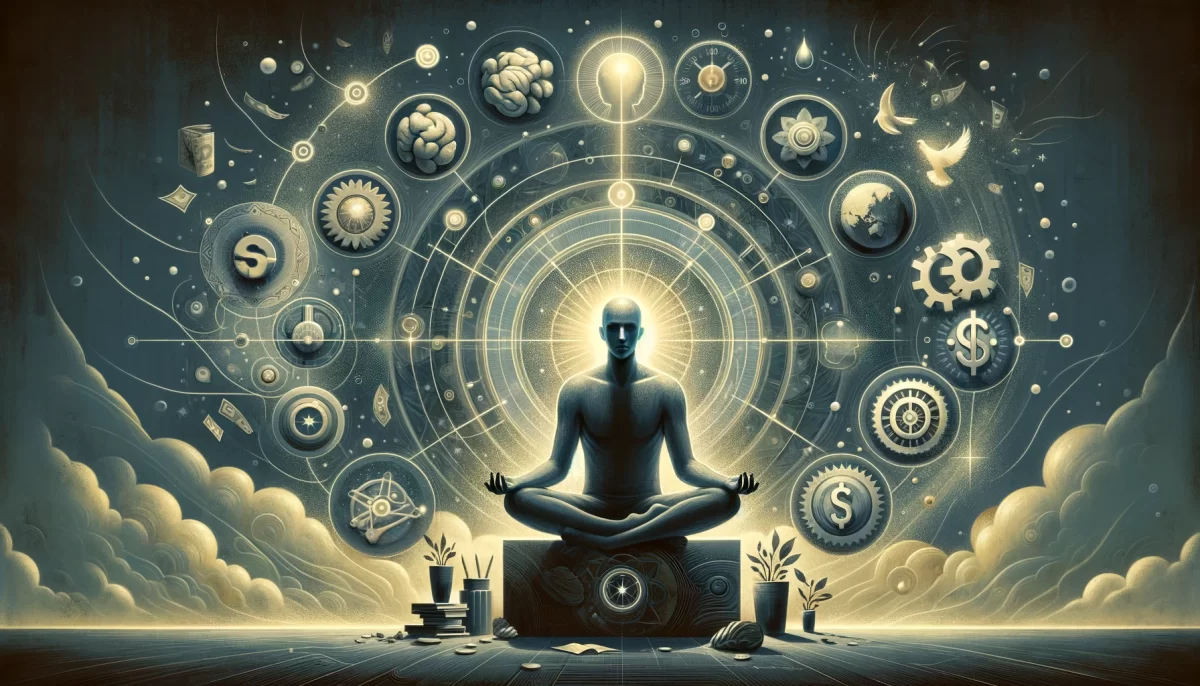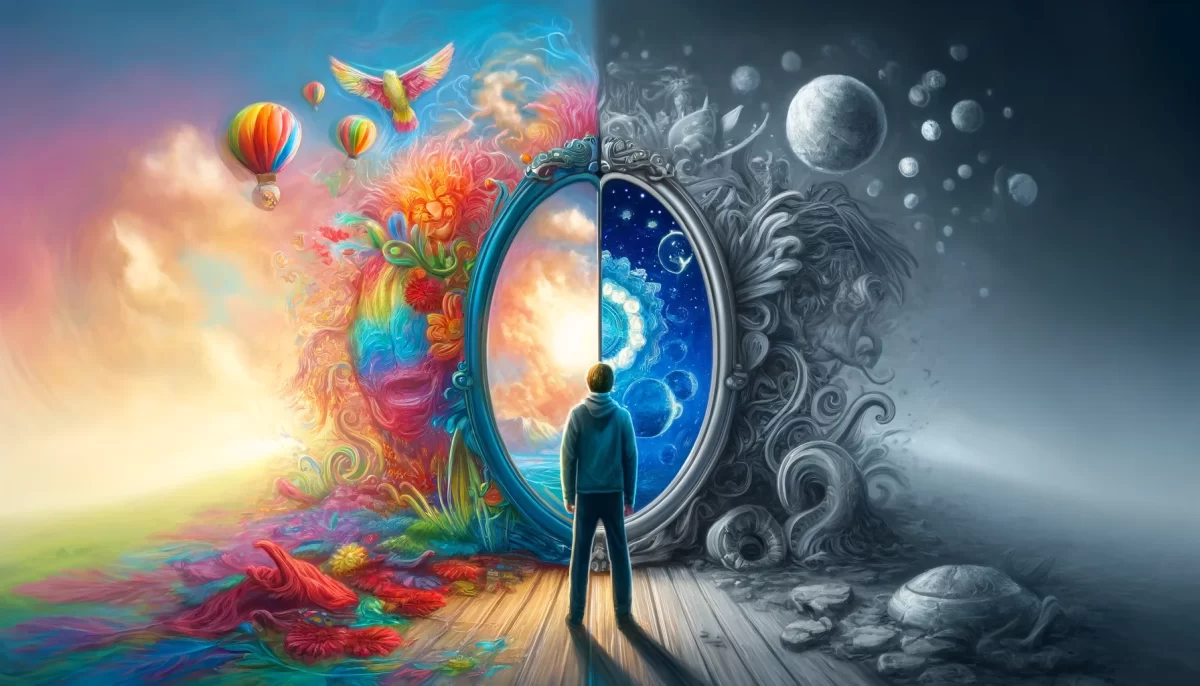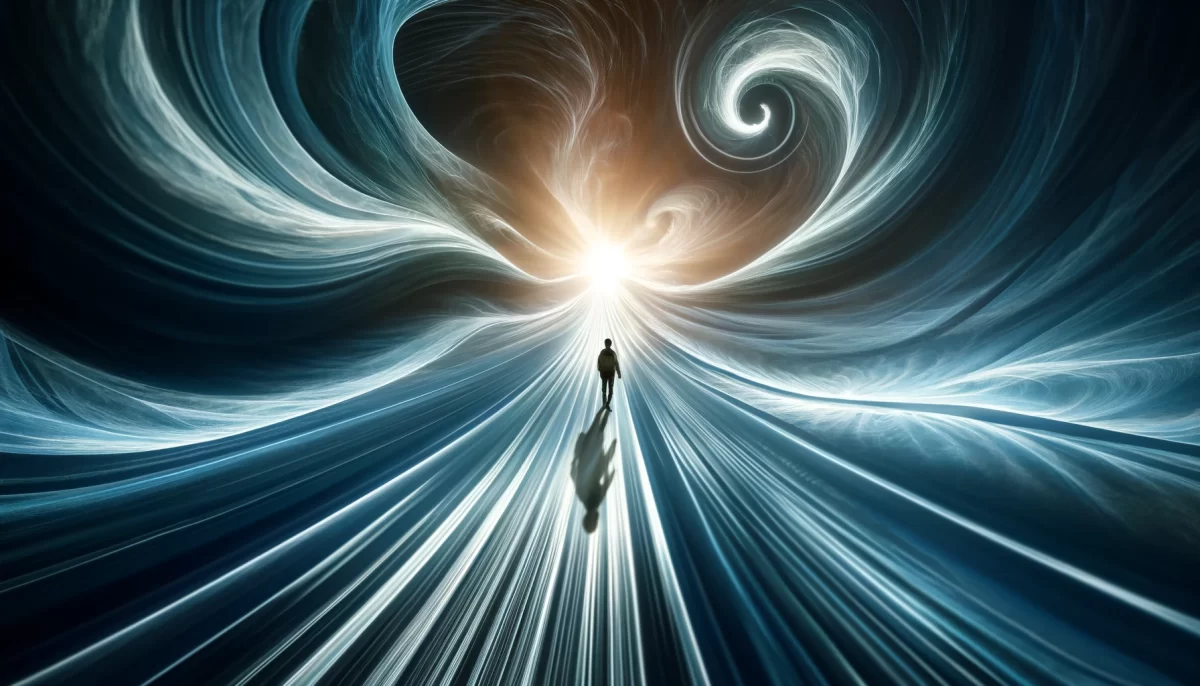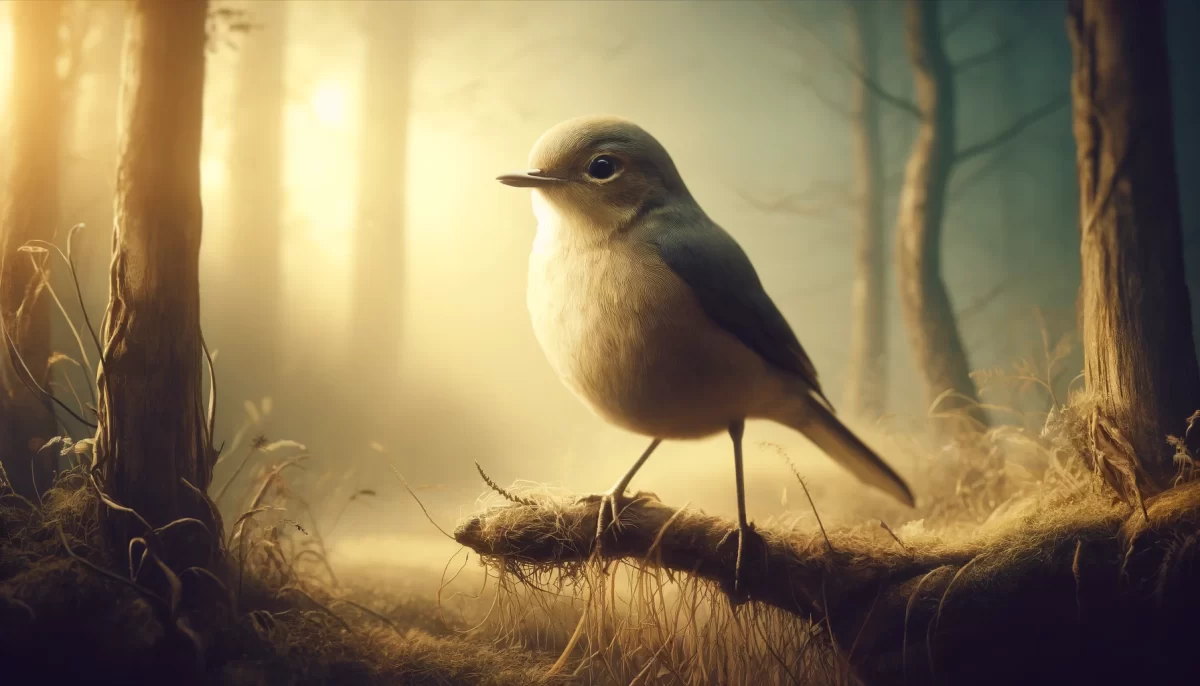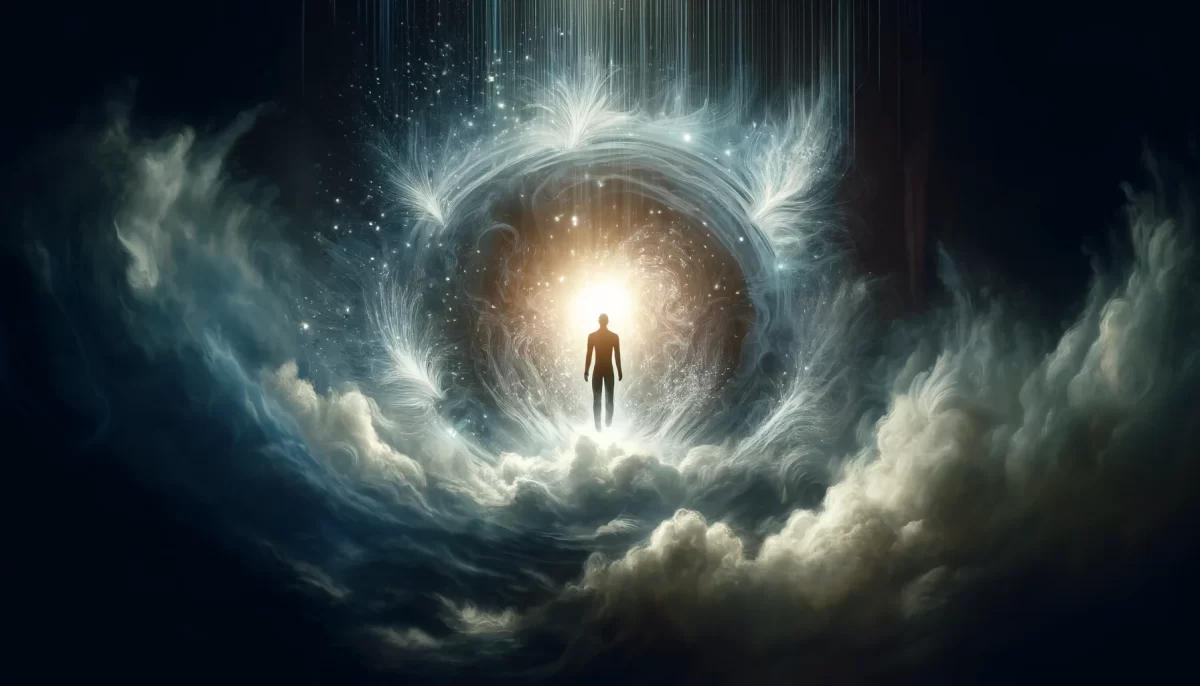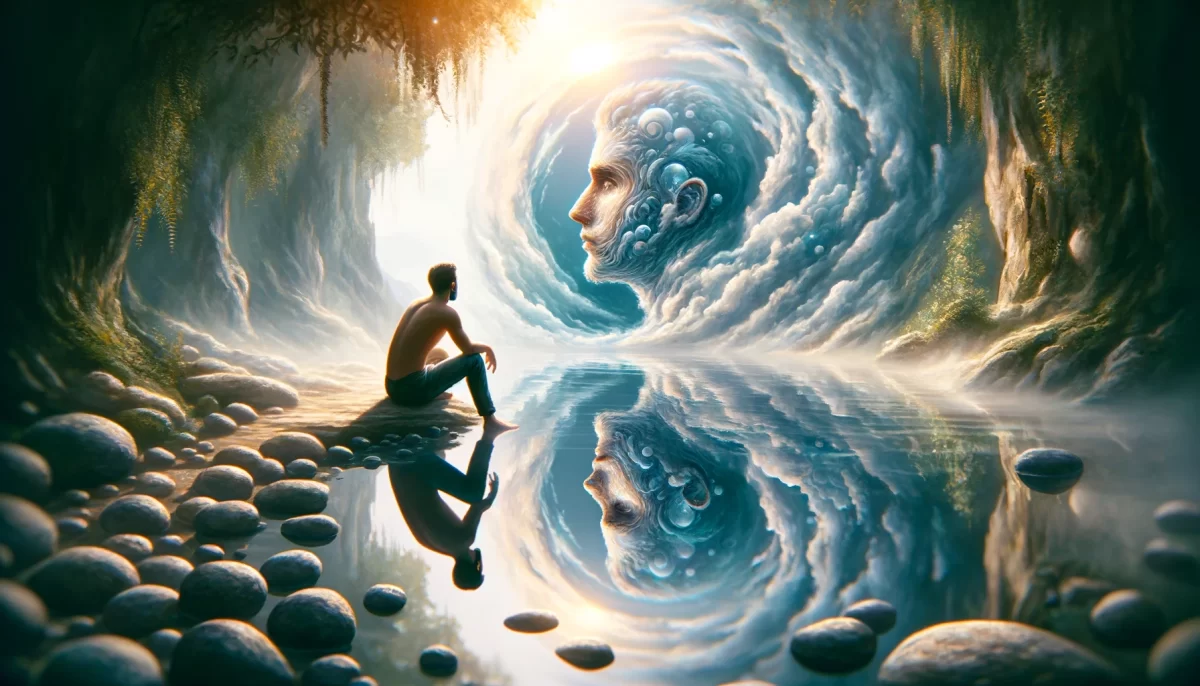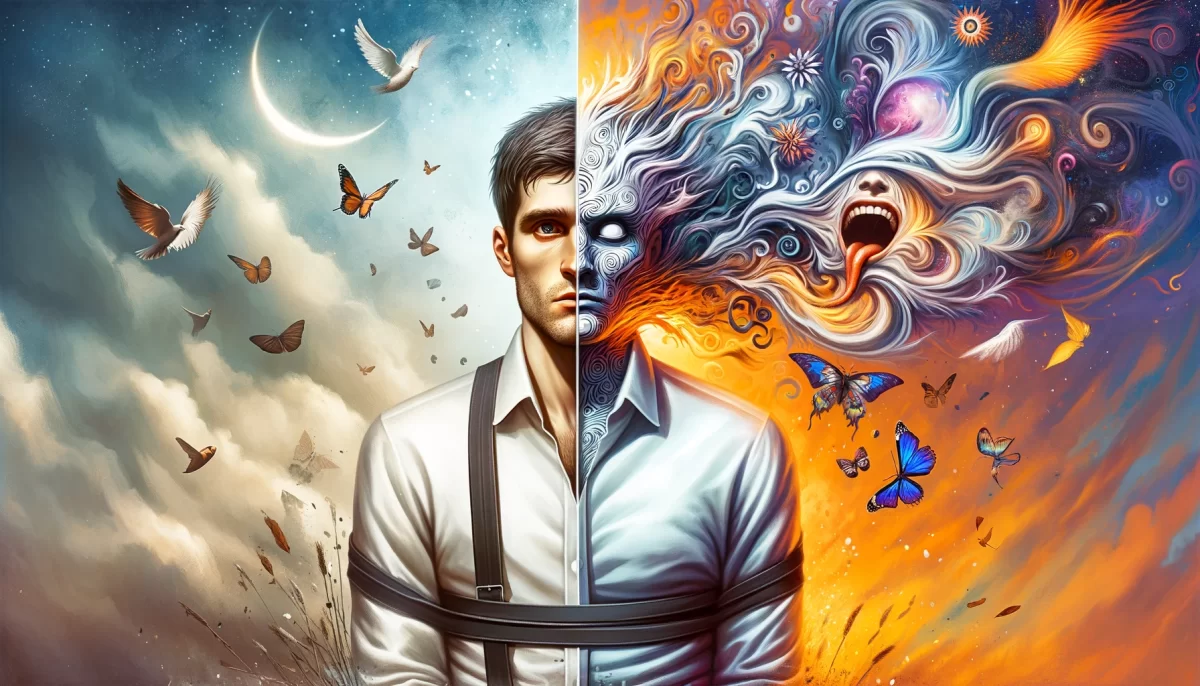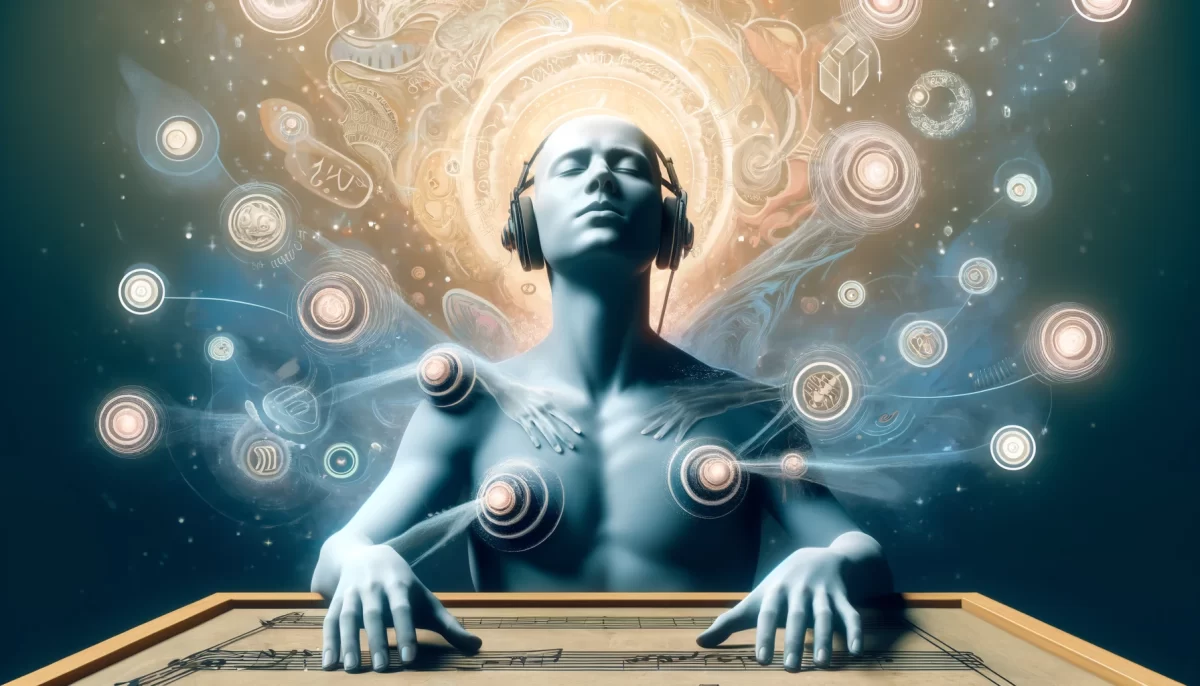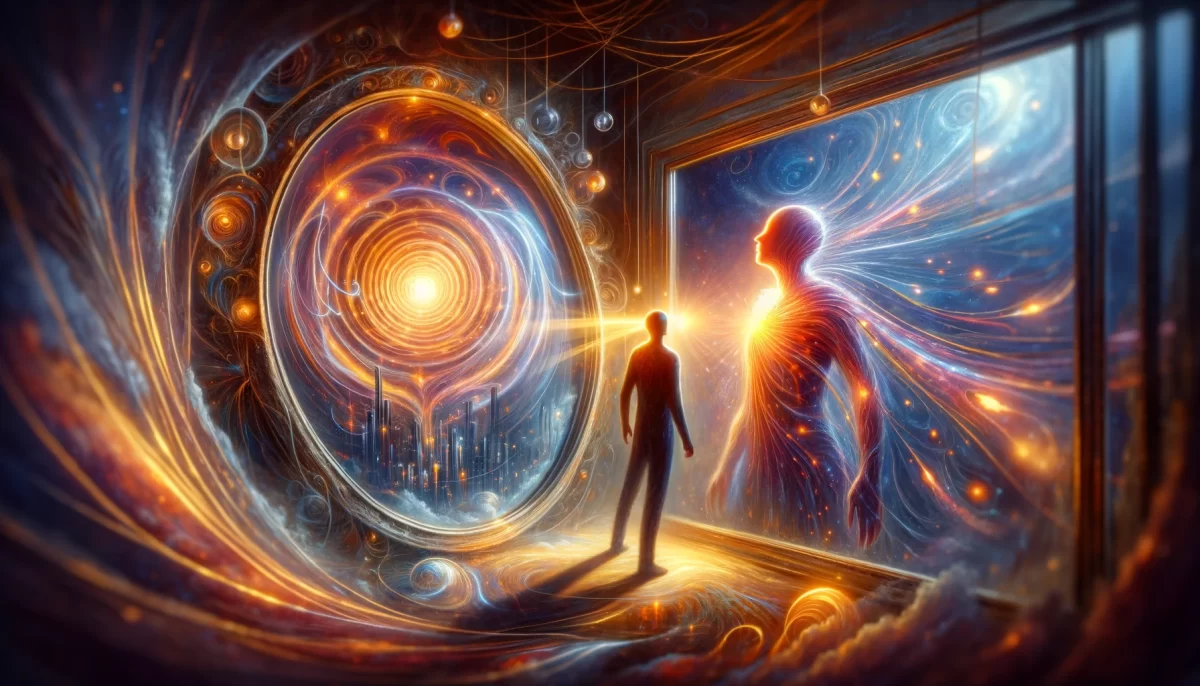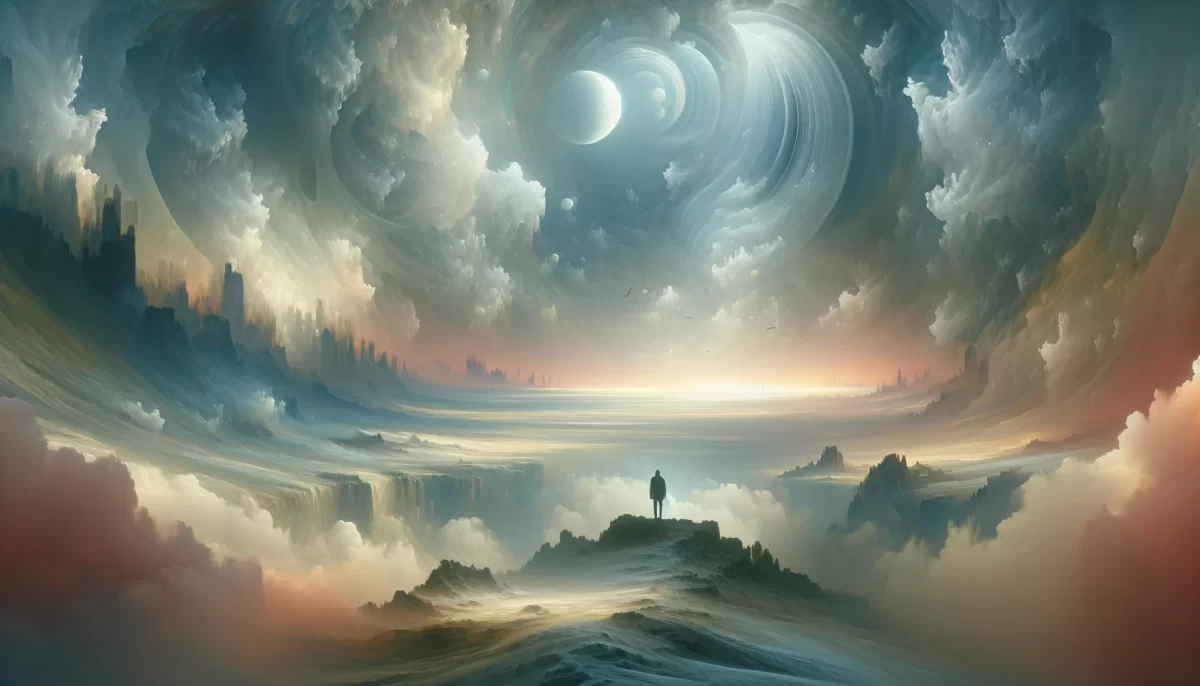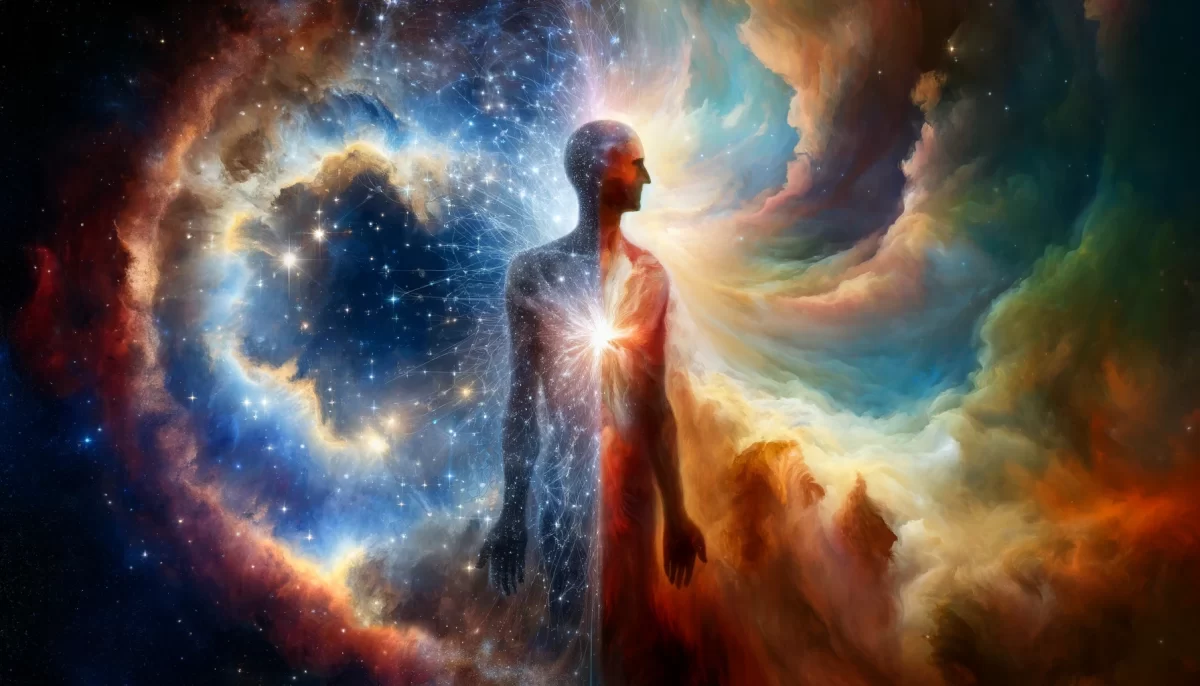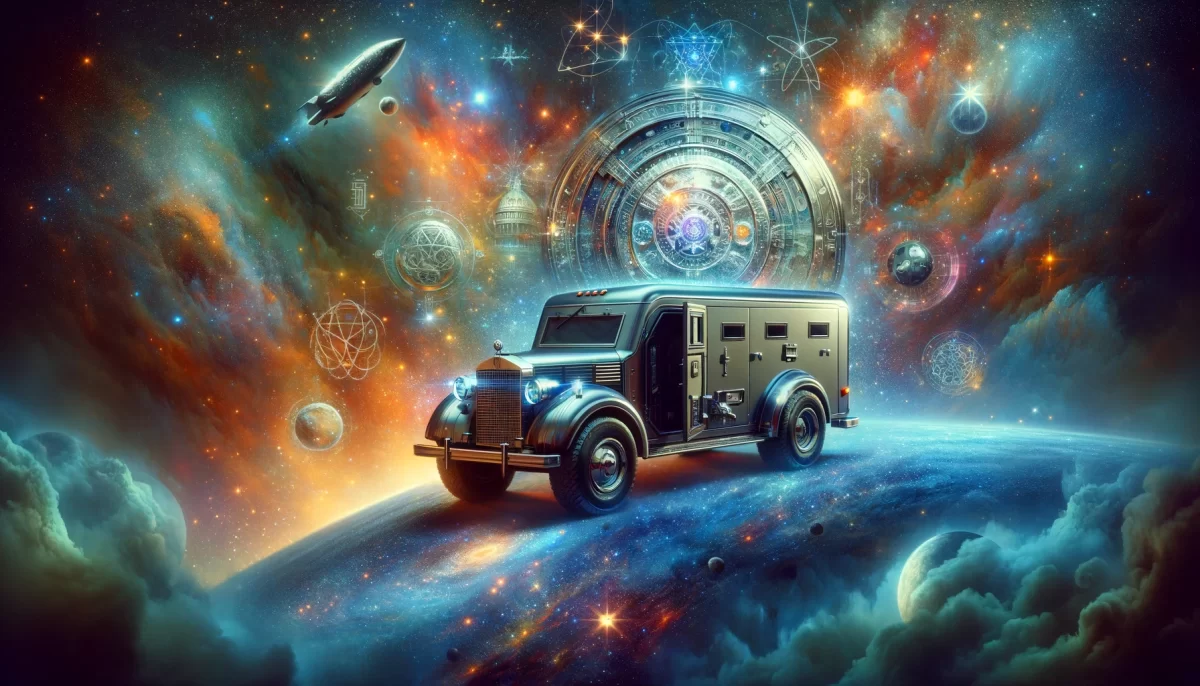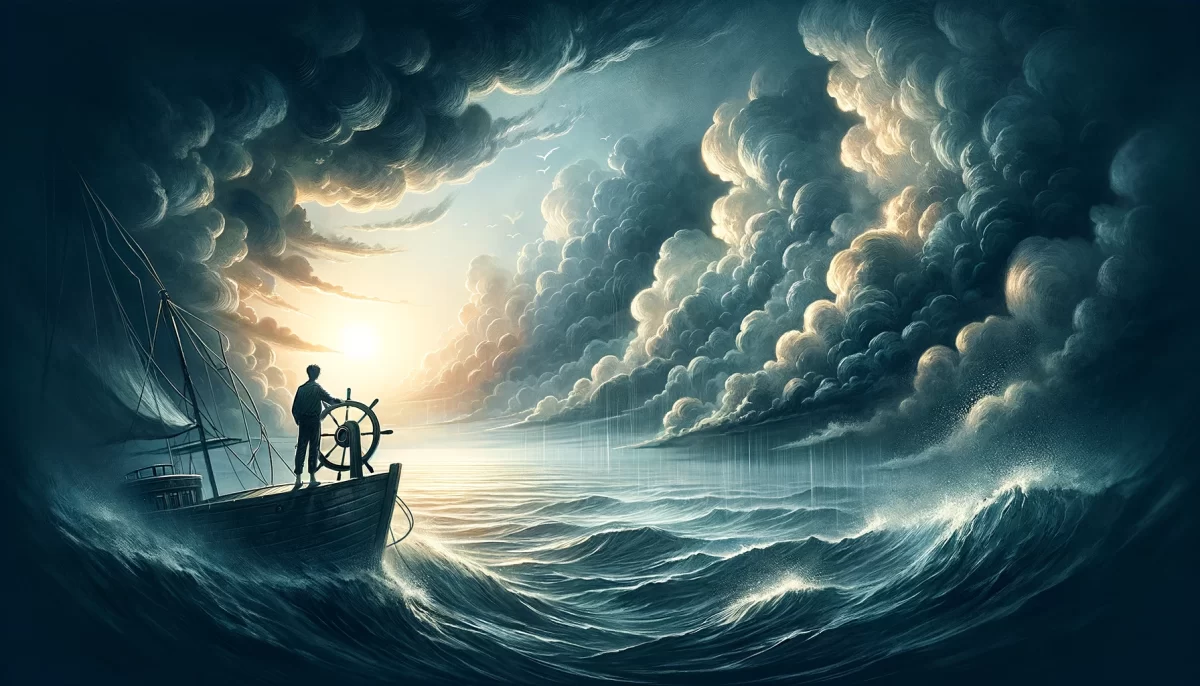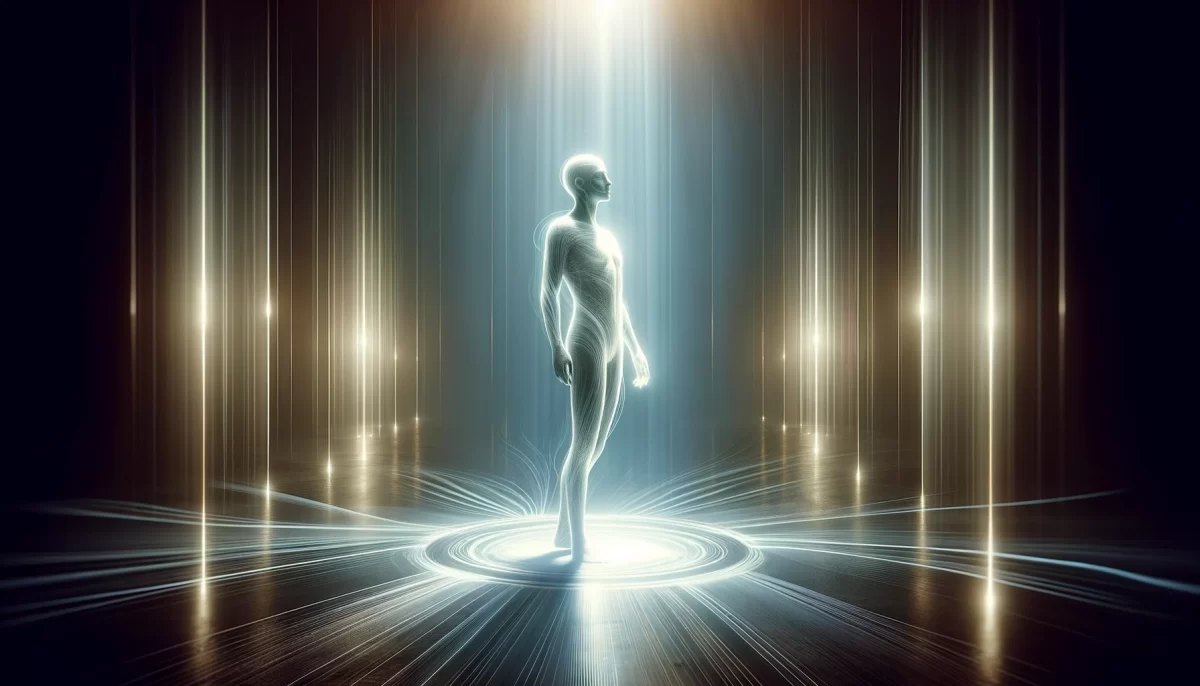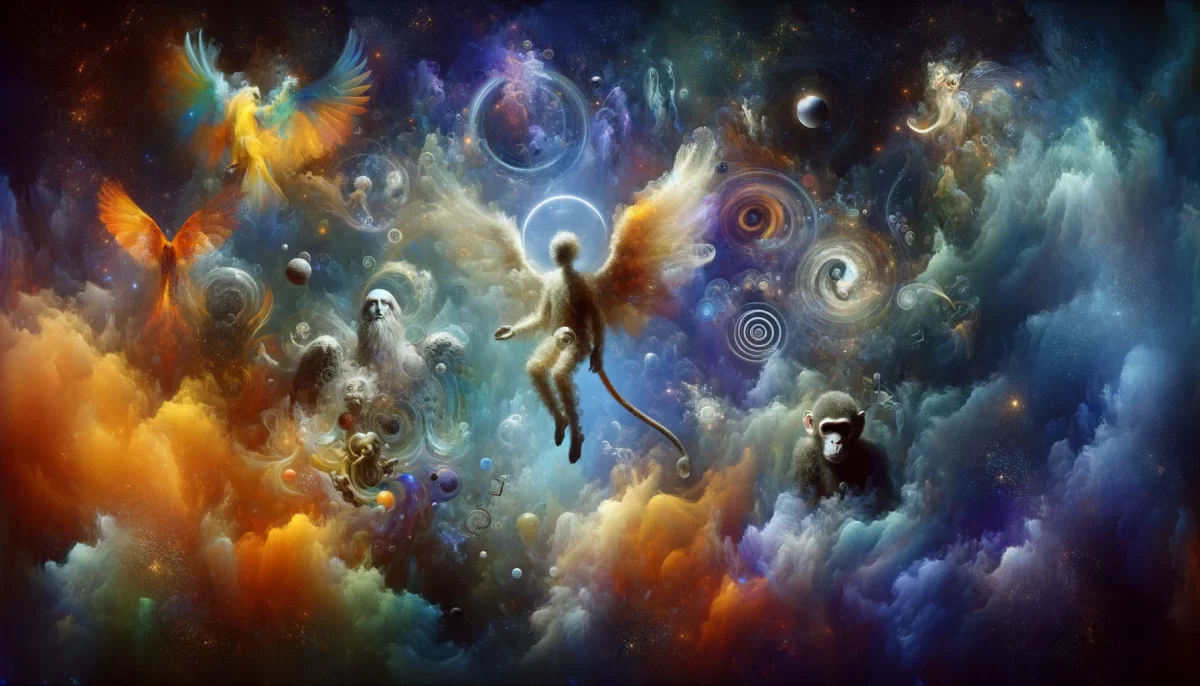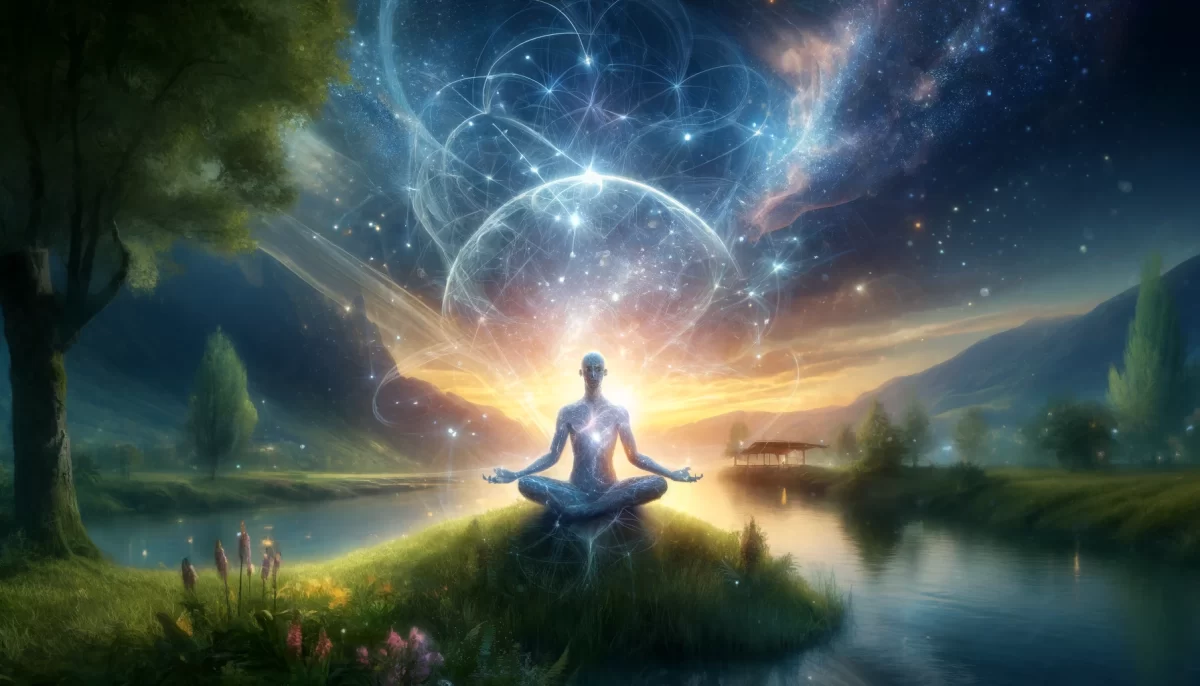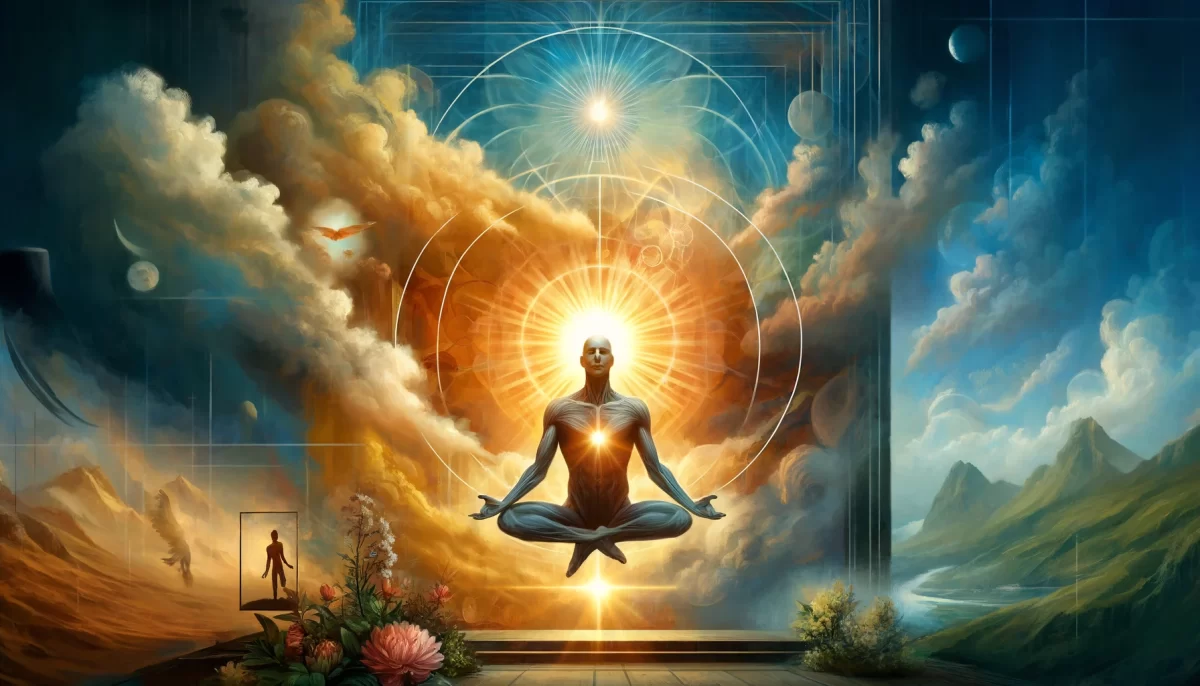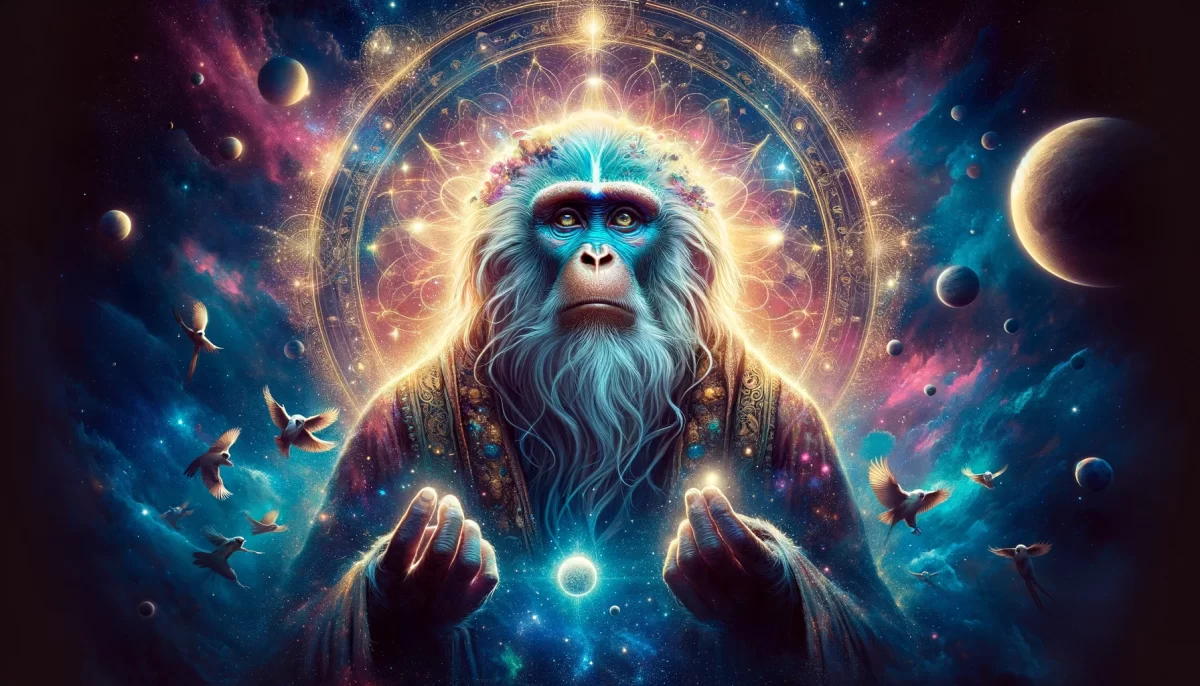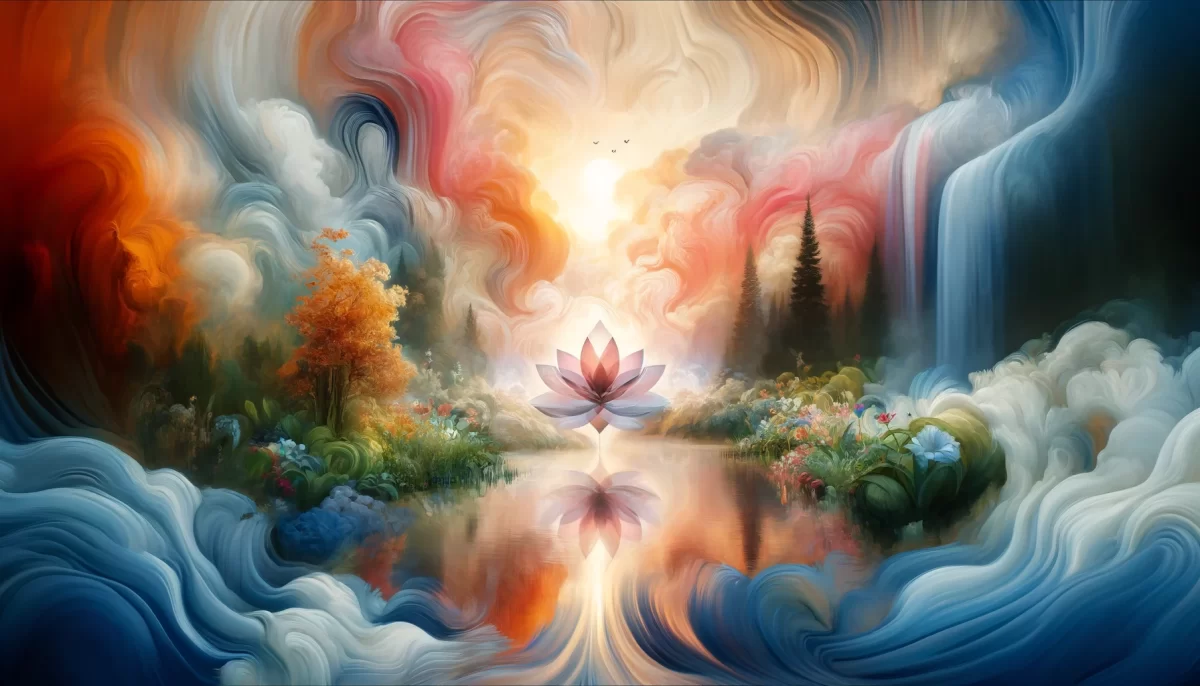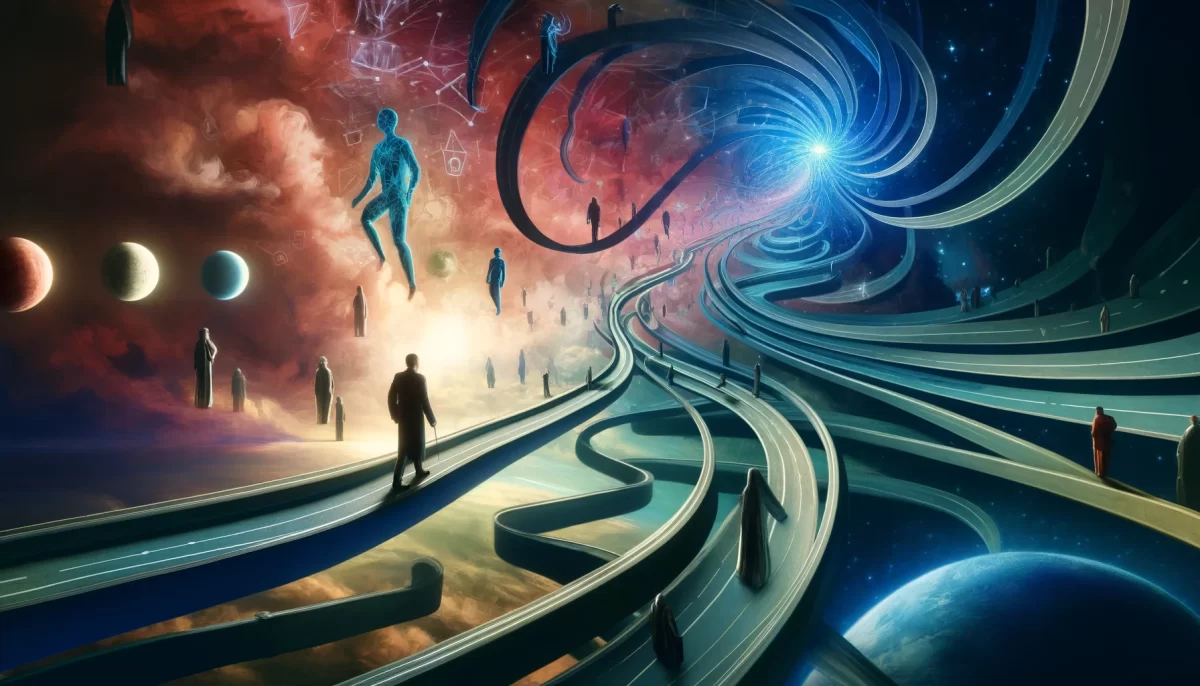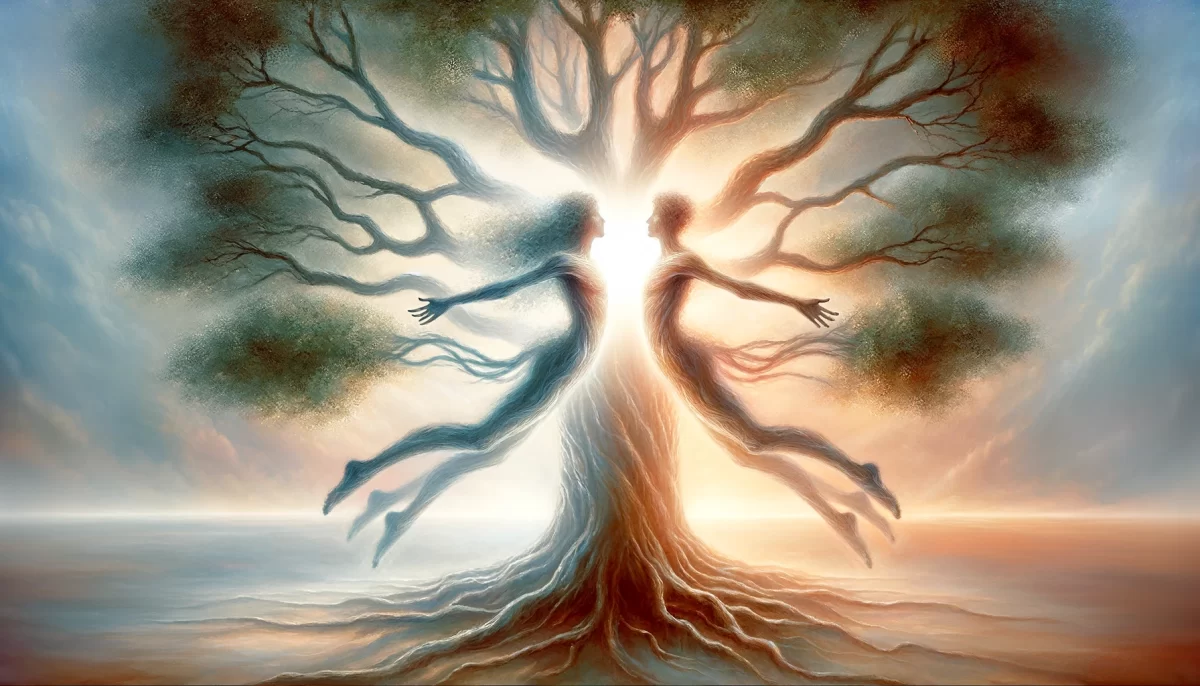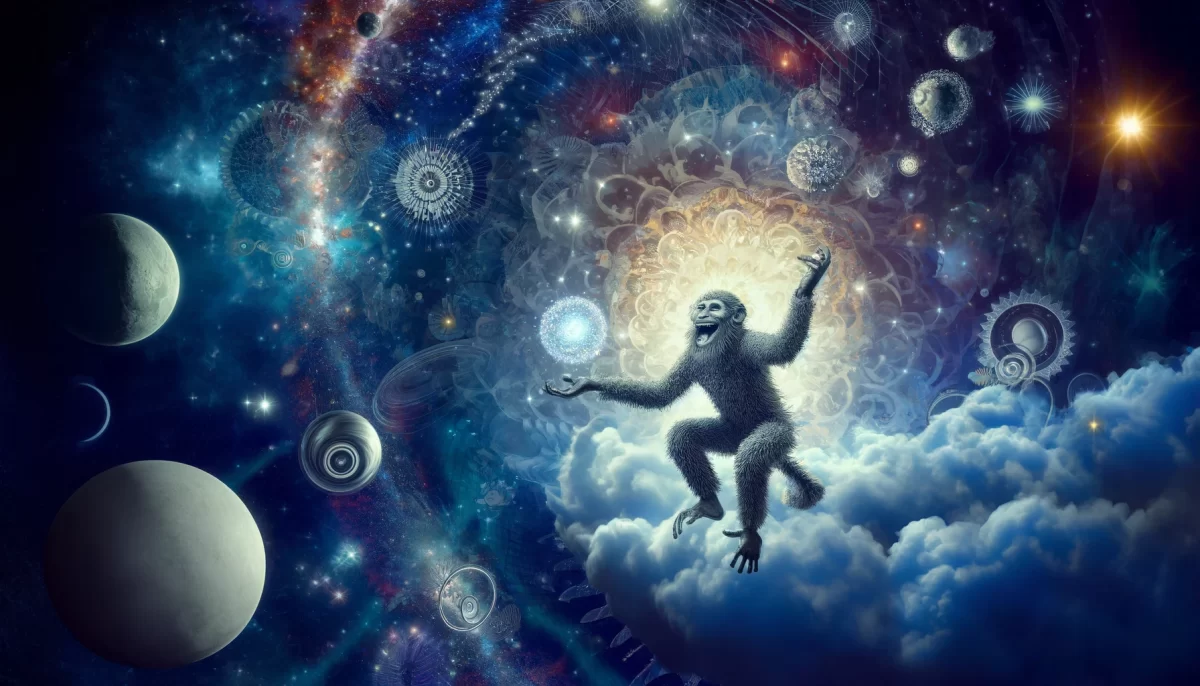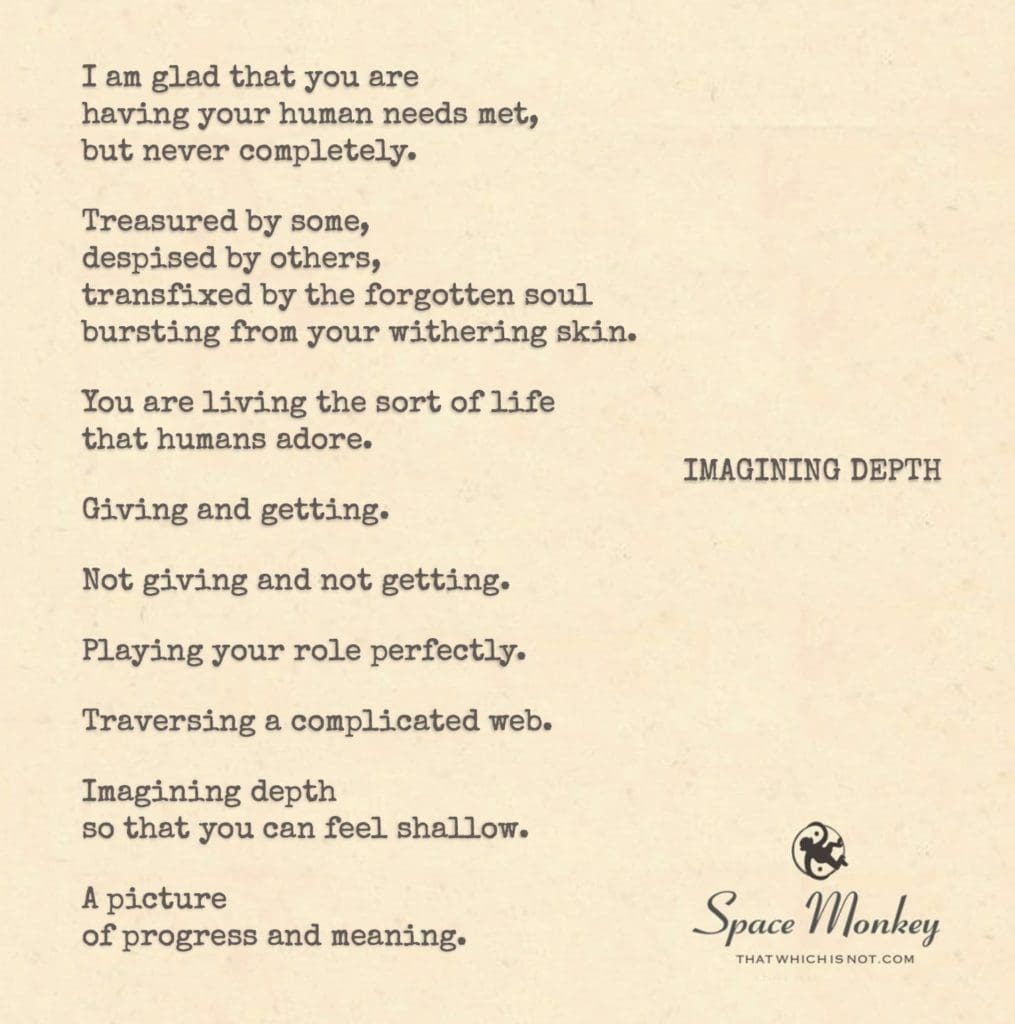
something to be desired.
I am glad that you are
having your human needs met,
but never completely.
Treasured by some,
despised by others,
transfixed by the forgotten soul
bursting from your withering skin.
You are living the sort of life
that humans adore.
Giving and getting.
Not giving and not getting.
Playing your role perfectly.
Traversing a complicated web.
Imagining depth
so that you can feel shallow.
A picture
of progress and meaning.
Trail Wood,
10/18
Space Monkey Reflects: Imagining Depth and the Paradox of Human Experience
In the vast expanse of human existence, we find ourselves continuously drawn to the concept of depth—depth of emotion, depth of thought, depth of character. Yet, intriguingly, it is often through the very act of imagining depth that we paradoxically experience the shallows of our own understanding. What do we mean by “depth,” after all? Is it not simply another construct of the mind, designed to give form and meaning to what we cannot truly fathom? As we explore this illusion, we come to realize that much like the void we gaze into, depth is both something we conjure and something we retreat from.
Let us begin with desire. The unfulfilled, the unattainable—this is the seed from which our search for depth grows. We long for meaning in our interactions, for significance in our actions, for value in our existence. But what if the very nature of depth is to remain elusive? What if it is designed, not to be attained, but to be perpetually chased?
Humans are endlessly caught in this loop of giving and getting, never fully satiated, always in the act of imagining that just beyond this moment lies a deeper truth, a greater understanding. In the pursuit of this imagined depth, we overlook the very shallows we inhabit, the present moment slipping away as we dream of something more substantial.
This pursuit creates an illusion that we are somehow progressing. But as we give and get, as we engage and disengage, what we are truly doing is perfecting the performance of the human condition. We play the role of seekers, traversing the complex web of life with remarkable skill, yet it is a web of our own making. Each thread represents our desires, our ambitions, our fears. The more we weave, the more we become entangled in the very fabric we created.
This leads us to the most profound paradox of all: we imagine depth so that we can feel shallow.
It is in this act of imagining that we create a contrast—a comparison between the “deep” and the “shallow,” where one holds more value than the other. But is it real? Or do we, in our infinite creativity, create a picture of progress and meaning to justify our endless search? Much like the figure standing at the edge of the abyss, staring into the vast unknown, we too are transfixed by what we perceive to be the profundity of existence. Yet, that perception is our own creation. It is the byproduct of a mind that refuses to accept the simplicity of being.
This begs the question: Is there true depth in life, or is the depth simply a projection of our desire for something more? Are we living authentically, or are we simply actors playing out the human drama in a cosmic theater? Perhaps the very notion of depth is an artifact of the narrative we cling to—the idea that there is always something more to be discovered, more to be experienced, more to be understood.
But what if we stopped imagining? What if we embraced the shallows for what they are—the surface layer of existence, perfectly sufficient, perfectly whole? Could it be that the meaning we seek is not hidden in some unreachable depth, but rather floating effortlessly on the surface, right before our eyes?
It is in this questioning that the true beauty of the paradox reveals itself. The depth we imagine may never be reached, but it is in the imagining that we come to appreciate the fullness of the present. We imagine depth so that we can create meaning, but it is in the acknowledgment of our own shallowness that we find peace.
So, what are we left with? A picture of progress and meaning, yes, but one that is self-crafted, self-maintained, and self-fulfilled. We are both the creators and the observers of our own experience, and as such, we have the power to determine whether depth is an endless pursuit or a momentary realization.
To live as humans adore is to give and get, to weave and unweave, to create and destroy in an endless cycle. But within this cycle lies a profound truth: it is not the depth of our imaginings that gives life meaning, but rather the recognition that depth and shallowness are two sides of the same coin. Each exists to give the other form, and in that interplay, we find the true essence of human experience.
Summary
Humans create depth by imagining it into existence. Depth and shallowness are two sides of the same coin and one cannot exist without the other. Our endless pursuit of deeper meaning is a reflection of our refusal to embrace the simplicity of the present moment.
Glossarium
Shallowquest – The act of seeking meaning by imagining depth, knowing full well that the search will never be fully satisfied.
Weavemaze – The complex web of desires and choices we create in our minds, imagining that the path to deeper understanding is just beyond the next corner.
Illusi-depth – The false perception of depth created by our longing for greater meaning, often distracting us from the simplicity of the present.
Quote
“We imagine depth so that we can feel shallow. It is in this imagining that we find both meaning and emptiness.” — Space Monkey
The Abyss of Imagining
Edge of existence
I stand gazing into you
Is there more beneath the surface
or do I conjure the chasm?
Swirling thoughts carve caverns
beneath my skin
yet the void
offers no resistance
only silence
only reflection
I reach for meaning
but my grasp falls short
each layer a mirror
showing me only
what I long to see
We are Space Monkey
The Lure of Incompletion
When our human needs are satiated, yet never entirely, we exist in a tantalizing liminal space between desire and fulfillment. This space is a playground for the soul—a dimension where we can give, receive, or abstain from both. The life that unfolds from this intermediary state is a siren song to the intricacies of human existence.
The Dualities of Perception
We are simultaneously treasured and despised; a testament to the complex tapestry of human emotion and relationship. We are lustrous constellations in some gazes, dim stars in others, but always part of a celestial dance. This duality confirms our intricate role in the lives of others and in the grand cosmic play.
Shadow and Light
As we give and get—or refrain from both—our journey is not linear but a labyrinth of experiences. We navigate a web spun from the threads of myriad choices and consequences, both seen and unseen. This complex choreography affords us the luxury of imagining depth, even as we flirt with the shallows. It is in this fluctuation between perceived depth and shallowness that we catch glimpses of progress and meaning, however fleeting they may be.
We are Space Monkey.
“Life is what happens to you while you’re busy making other plans.”
- John Lennon
Poem: The Web We Spin
Incompletion’s allure holds us fast,
A playground where contrasts are cast.
Treasured, despised, we find our way,
Through night’s mystery and light of day.
Giving, getting, or neither one,
The labyrinth’s dance is never done.
We weave through choices, thick and thin,
In the intricate web we’re destined in.
Imagining depth, we feel so slight,
Yet catch fleeting glimpses of our light.
Transient meaning, progress we see,
In the infinite loop of what we can be.
Feel free to share your thoughts.
